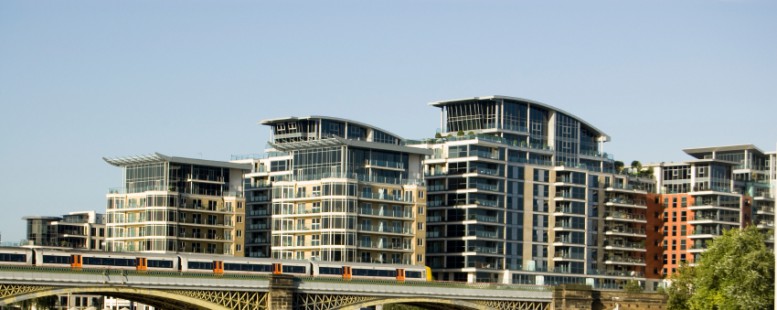Our Opinion: 2020
The housing market’s deep freeze

Most of the non-essential parts of the British economy have been put on hold by the coronavirus lockdown. The housing market is no exception. With moving during the lockdown period being heavily discouraged by the government and many lenders now refusing to lend to those with anything less than a 40% deposit, property website Zoopla reckons that the number of houses sold in the UK will fall by at least 60% in the next three months.
There are several factors behind the move – the shutdown has reduced banks’ capacity to process loans, surveyors are unable to value properties as easily and estate agents can’t show people around homes. On top of that, it’s hard to value
a house when transactions have dried up and there are no comparable deals going through, and it’s hard to write loans when job security across almost all industries and seniority levels is suddenly in question.
So for now, the property market is effectively frozen. Price data will be virtually meaningless in the coming months, as pretty much the only deals being done are between those who are forced to sell and those who are cash buyers.
So what happens when the lockdown is over? A lot depends on the state of the economy – and also the level of restrictions on movement that remain. On that front, estate agents argue that there will be plenty of “pent-up demand” from both buyers and sellers, given that mortgage approvals in February hit their highest level since 2014. Cheap funding available to banks from the Bank of England should mean the mortgage market remains open and rates stay low once the worst of the crisis is past, even if the riskiest loans are no longer on offer.
But this might be wishful thinking. House prices are largely dictated by the price and availability of credit (in other words, interest rates and banks’ willingness to lend). But unemployment is another huge factor and, whilst the government has made great efforts to protect incomes and jobs, and mortgage holidays are widely available, some forced selling is almost certain. Meanwhile, a key source of demand in some areas – the holiday lettings business – will also suffer as holiday landlords who lost money during the lockdown sell out.
In the longer run, interest rates are unlikely to rise because the Bank of England will be forced to hold them down, given soaring government borrowing. In time that could result in inflation, which would make property appealing as a ‘real’ asset. But that may take time. Capital Economics expects house prices to fall by just 3% this year, but notes “there are many risks that could undermine this forecast”, a larger-than-hoped rise in unemployment being the key one.
One likely outcome is there is likely to be a wider shift to working from home more regularly. This means country properties are more likely to outperform city ones. Towns and villages once deemed to be on the fringes of commuting range of London, and other big cities, might also see a benefit.
In the US, property appears to be heading for a slump. Bloomberg recently reported that “a housing crisis is coming.” The American mortgage market was at the centre of the 2007 financial crisis. House prices are now up by 117% from their pre-crisis peak.
A wave of forced sellers could crash prices once social-distancing restrictions are lifted. Heavy losses in the stock-market could mean that older homeowners are forced to downsize early. Yet surging unemployment means there will be few buyers to meet the supply surge.
Massive state intervention should provide a backstop to the residential mortgage market. The Federal Reserve will buy unlimited amounts of mortgage-backed securities. Yet, the same cannot be said of commercial property, where leveraged real-estate investment trusts (Reits) cannot afford for rent payments to dry up.
Commercial real estate and social distancing don’t mix, and the value of Reits have fallen on both sides of the Atlantic, even though their balance sheets are in better shape than in 2008. While retail space is the obvious casualty of social distancing, a deep recession will also be grim for office and warehouse landlords. For all its reassuring familiarity, property is a surprisingly risky business.
22nd April 2020
